
Monique is as beautiful and unobtainable as an Aztec goddess. Or is she? In this novel set in California’s San Joaquin Valley, a Mexican American teenager must choose between what he desperately wants and what he knows is best.
Material appropriate for young adults

Monique is as beautiful and unobtainable as an Aztec goddess. Or is she? In this novel set in California’s San Joaquin Valley, a Mexican American teenager must choose between what he desperately wants and what he knows is best.
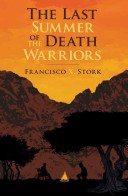
When Pancho arrives at St. Anthony’s Home, he knows his time there will be short: If his plans succeed, he’ll soon be arrested for the murder of his sister’s killer. But then he’s assigned to help D.Q., whose brain cancer has slowed neither his spirit nor his mouth. D.Q. tells Pancho all about his “Death Warrior’s Manifesto,” which will help him to live out his last days fully–ideally, he says, with the love of the beautiful Marisol. As Pancho tracks down his sister’s murderer, he finds himself falling under the influence of D.Q. and Marisol, who is everything D.Q. said she would be; and he is inexorably drawn to a decision: to honor his sister and her death, or embrace the way of the Death Warrior and choose life. Nuanced in its characters and surprising in its plot developments–both soulful and funny–Pancho & D.Q. is a “buddy novel” of the highest kind: the story of a friendship that helps two young men become all they can be.
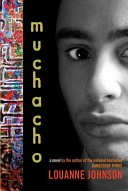
Living in a neighborhood of drug dealers and gangs in New Mexico, high school junior Eddie Corazon, a juvenile delinquent-in-training, falls in love with a girl who inspires him to rethink his life and his choices.
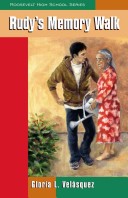
As high school senior Rudy adjusts his attitudes toward the elderly when his senile grandmother has to move in with his family, his girlfriend encourages him to talk with a friend’s mother who has similar problems with her own mother.

Living on the University of Colorado-Boulder campus with his older brother Alex, a college student and ex-gang member, high school senior Carlos is not ready to give up his wild ways until he meets a shy classmate named Kiara and becomes unwillingly involved in a drug ring.
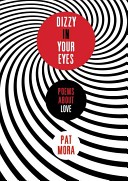
Beloved children’s book author and speaker Pat Mora has written an original collection of poems, each with a different teen narrator sharing unique thoughts, moments, sadness, or heart’s desire: the girl who loves swimming, plunging into the water that creates her own world; the guy who leaves flowers on the windshield of the girl he likes. Each of the teens in these 50 original poems, written using a variety of poetic forms, will be recognizable to the reader as the universal emotions, ideas, impressions, and beliefs float across the pages in these gracefully told verses.Also included are the author’s footnotes on the various types of poetic forms used throughout to help demystify poetry and showcase its accessibility, which makes this a perfect classroom tool for teachers as well as an inspiration to readers who may wish to try their own hand at writing.
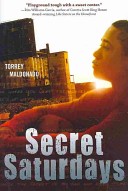
Twelve-year-old boys living in a rough part of New York confront questions about what it means to be a friend, a father, and a man.
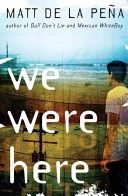
After “it” happens, Miguel is sent to juvenile hall for a year. The judge had no idea he was doing Miguel a favor. Ever since “it” happened, his mother can’t even look at him. “Any” home besides his would be a better place to live.
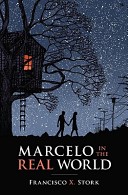
Marcelo Sandoval, a seventeen-year-old boy on the high-functioning end of the autistic spectrum, faces new challenges, including romance and injustice, when he goes to work for his father in the mailroom of a corporate law firm.
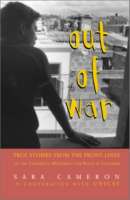
Through nine intimate first-person narratives, Out of War tells the story of the Children’s Movement for Peace, a network of organizations struggling against the forty-year civil war in Colombia. Readers will meet young people like Juan Elias, who decided he could best avenge his father’s murder by fighting to end the war; Maritza, who found refuge in the peace movement after her family and friends abandoned her in the communas of Medellin; and Beto, who works for the peace he never had in his abusive home. The voices of these children are raw and real, and their stories are nothing short of inspirational. In 1996, the Children’s Movement for Peace helped organize the Children’s Mandate, a referendum on children’s rights in Colombia. Two million children turned out to vote for their right to peace, sending the Colombian government a powerful message about its inability to control the violence within its borders. Since then, the Movement has worked to help children cope with loss, displacement, poverty, and other effects of the war. It has also taught children how to resolve conflict without fighting. The movement’s work is impressive, yet Out of War is really about the individual children who lead the group. Through them, readers will learn not only about the tenuous life of children in Colombia, but about what it means to give back to your community and face adversity with true courage and hope.